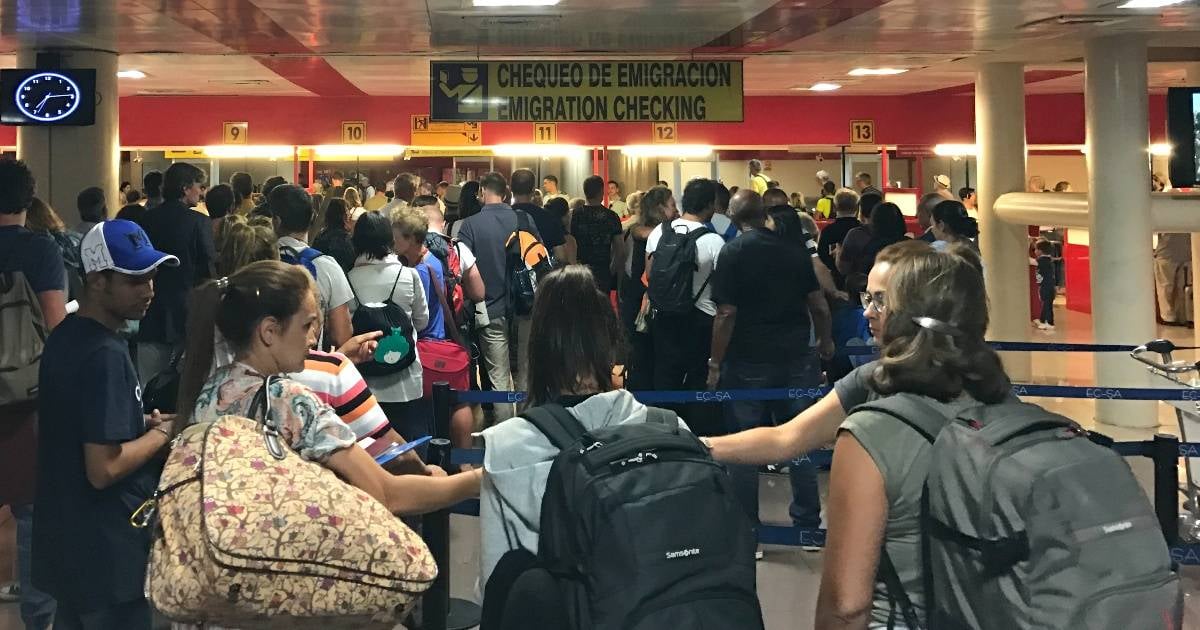
Related videos:
In the context of the most severe migration crisis Cuba has faced in decades, the regime of the Caribbean nation estimated the number of Cubans living abroad to be three million.
In an interview with the AP agency, Colonel Mario Méndez Mayedo, head of the Identification, Immigration, and Foreign Affairs Directorate of the Ministry of the Interior, stated that it is currently estimated that there are about three million Cubans living abroad, including those born on the island and their descendants.
In the United States, the country with the largest Cuban community, there were approximately 1.3 million Cubans residing there by the end of April 2024, in addition to another 300,000 who have their residency in process and about 100,000 who entered through special permits granted by the administration of President Joe Biden.
It explains that fewer Cubans have emigrated to Spain, Mexico, and Italy, and there is also a presence of them in Chile and Russia. In the last five years, Cubans have shown to hold citizenship from around 140 countries worldwide, the report notes.
In this context, the Cuban government has announced that it will present a package of three laws to Parliament to update the regulations regarding citizenship, as well as the entry and exit of the country for foreigners and nationals.
The Migration, Foreigners, and Citizenship laws will be debated by the National Assembly of People's Power in the session starting on the upcoming July 17th.
These laws introduce significant updates, such as the removal of the 24-month limit for Cubans living abroad to re-enter the country without losing their social and property rights, including ownership of their homes, said the official.
Additionally, Cuban citizenship can be claimed up to the grandchild level for Cubans living outside the country.
While the new laws will also expand rights and residency permits for Cubans who emigrated before the last decade—who currently face many restrictions—as well as for foreigners wishing to do business or settle on the island, they also allow the regime to regulate the entry of activists and dissidents who are seen as a threat to the government.
To this end, the new laws will establish conditions for "exceptional cases" related to "national security" or "public interest," as determined by the authorities.
In previous years, Cuban political opponents have reported being prevented from leaving the country when invited to activities abroad by groups that criticize the government, or from re-entering the island.
Méndez justified the controversial issue of "regulated" Cubans by stating that it must be understood in the context of the "permanent state of aggression" that Cuba faces, referring to the sanctions imposed by the United States.
U.S. border authorities reported encounters with half a million Cubans between October 2022 and May 2024, a significant figure for a population of 11 million inhabitants on the island.
Méndez, who recently referred to the massive exodus of Cubans in the last three years as "a new demographic and social scenario," stated that having accurate migration figures is essential for establishing public policies in health, education, and social security.
Last week, the Cuban regime acknowledged the severity of the current migration crisis and revealed that 1.3 million Cuban émigrés are residents of Cuba while actually living in the United States.
Filed under: